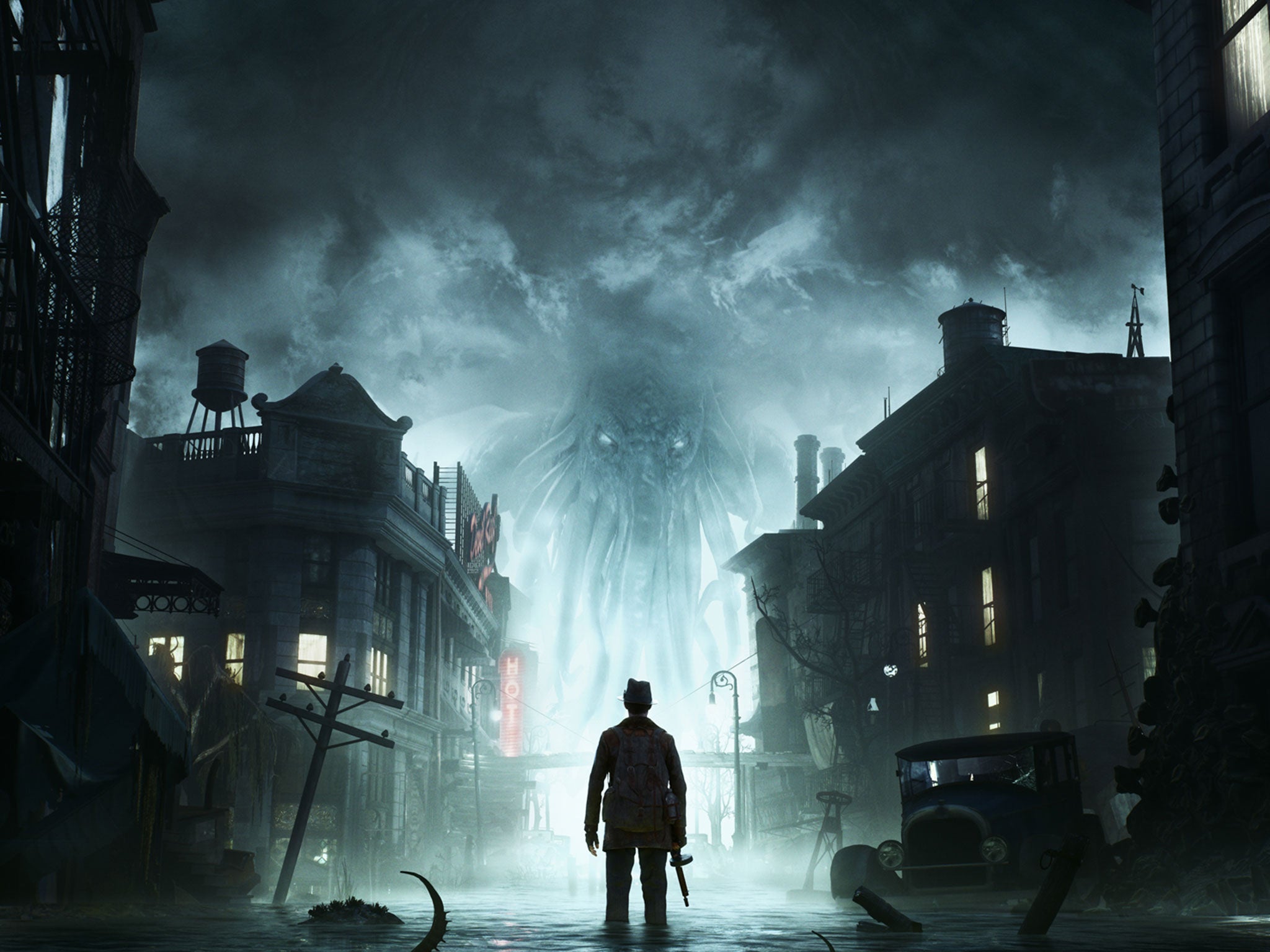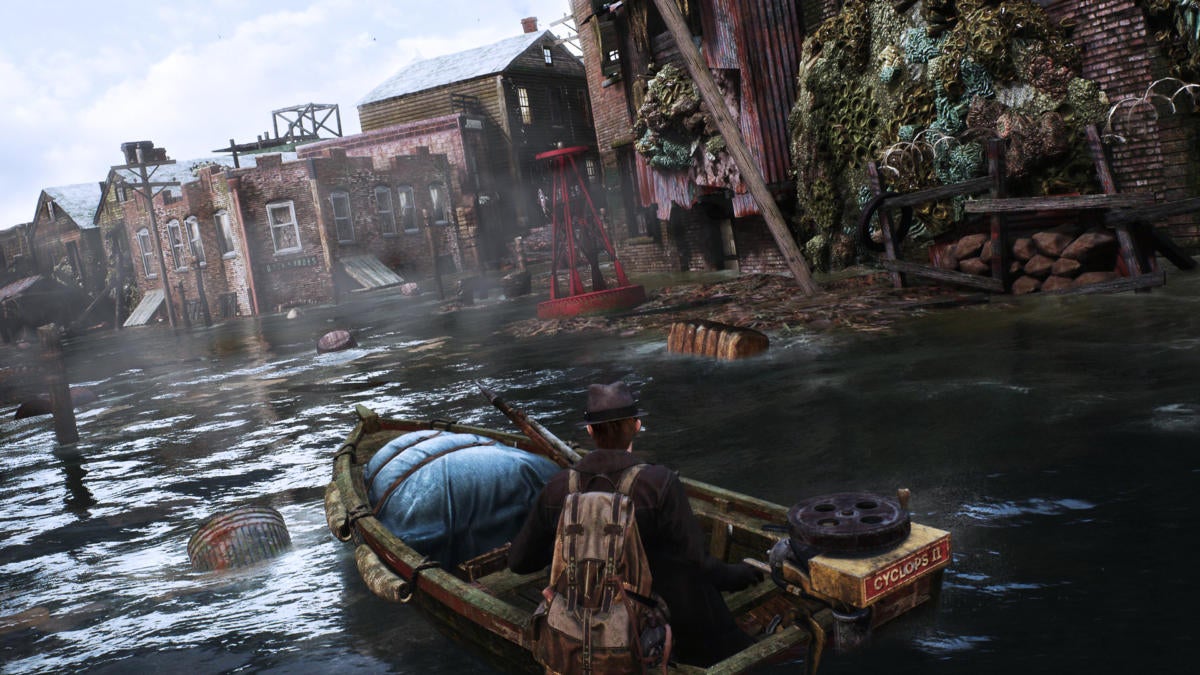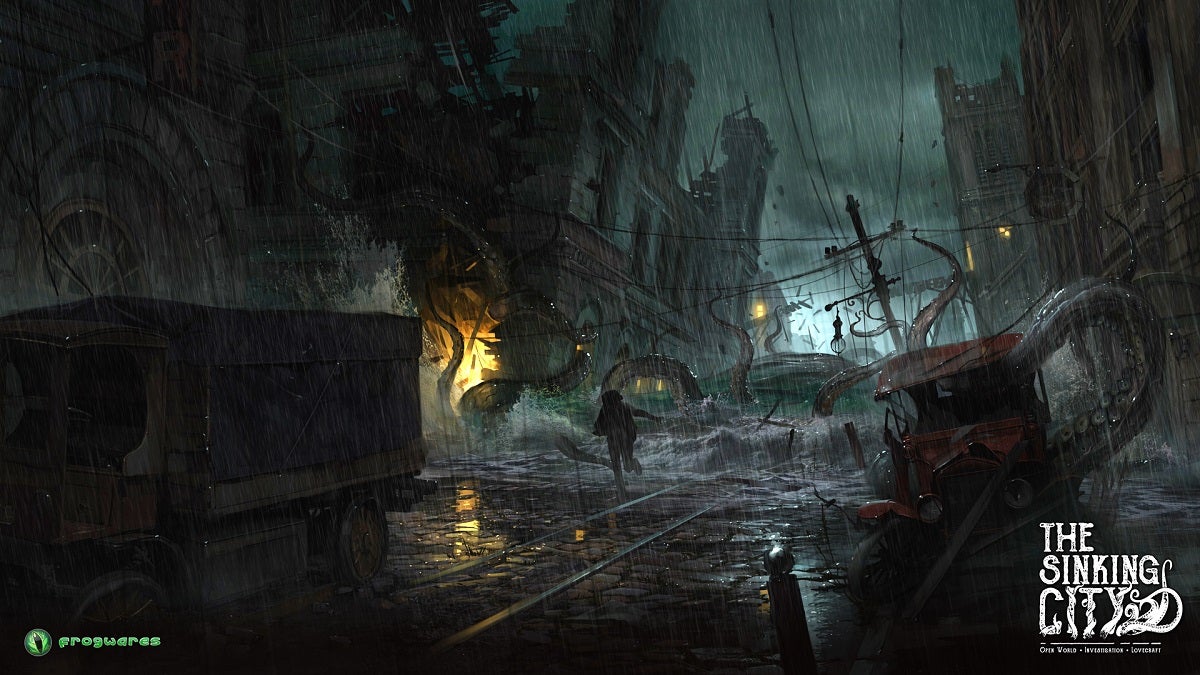HP Lovecraft inspired detective game the Sinking City drowns under its own ambition
The Sinking City is an unabashed Lovecraftian letter to the author’s most influential and powerful writing

The Sinking City is a dark and engaging open-world story, inspired directly by the Cthulhu mythos created by author HP Lovecraft. At first blush, it shows a great deal of promise – but it quickly moves from cosmic horror into something like boredom.
Set in 1920s America, you play as private investigator Charles Reed, who has just arrived in the fictional, half-submerged city of Oakmont, MA where you’re following reports of violent visions which have turned people psychotic.
The game is a whistle-stop tour of Lovecraftian references; from cleverly chosen street names, to whispers of Deep Ones and the mention of the hideous Innsmouth, the setting for one of Lovecraft’s novels.
The stage is set like one of those stories. Human curiosity has led to the discovery of cyclopean shrines dedicated to God-like beings underwater, the mere sight of which has driven people mad. All the while, shambling horrors from the sea now infest parts of the drowned city ever since a tumultuous event called the Flood drowned half of Oakmont.
The game’s focus is on your investigation skills and you progress by solving cases. These see you traversing the sodden city and plumbing the deepest depths of the ocean to find answers, while trying to keep your sanity intact.

The ideas behind the Sinking City are fantastic. Solving cases and exploring a world steeped in Lovecraft lore should be extremely engaging and fun. But in practise, they are less than thrilling.
You follow the thread from A to B, excitedly deducing clues. You’ll read through notes obtained from crime scenes which mention a location and district on your map. Cross-referencing this information and placing a pin on your map is essential to progressing as the game won't ever show you where to go. This gives you a great amount of detective work to do and is initially thoroughly enjoyable.
By the fifth time you go through this process the game flounders like a beached bream. You'll find yourself pausing, flicking between notes every few minutes and arduously scanning each street name, destroying the pacing of the game. Once you complete your first case, you’ve seen nearly everything the game has to offer.
Scrolling through historical city records for your next lead adds a great deal of immersion, but these actions are too frequently repeated. You’ll be forgiven for wondering whether it’s the gameplay driving you insane instead.
True to nearly all detective games, your character can sense things that normal people can’t, which you exploit at each crime scene. It’s perhaps one of the most played out tropes in gaming and this idea should rest at the bottom of the ocean.
Combat is awkward and feels obtuse, so much so that scrapping it entirely would’ve been better. Not only is it incredibly bare bones, but it’s clumsy and lacks any sort of satisfaction or rewards, albeit a meagre supply of experience points.
Staying true to the Lovecraft influence, seeing disturbing scenes and encountering unspeakable creatures causes your sanity gauge to drop, directly affecting your surroundings while you play. In the end, a complete loss of sanity will result in death, and this part of the gameplay is at least excellently, even beautifully done.

The seven districts of Oakmont are gorgeously oppressing to look at, but after time the stunning, turbid veil of the city’s rain is easily overlooked. The featureless streets blend into one, and jarring lighting effects, re-used assets and slow-loading menus mean you’ll spend most of your time fast travelling to get away from the hideous mountain of madness that is the repetition.
A lot of effort has gone into the side cases and their individual narratives, but much like some of Lovecraft’s novels, there’s just far too much of it which doesn’t need to be there, offering you nothing new in terms of gameplay.
The moments you get to explore underwater are, however, extraordinary. The attention to detail is superb, the entire environment is far more vibrant, varied and foreboding than anything felt or exerted above ground. These sections are done exceptionally well, adding to the atmosphere trying to be conveyed and the maddening narrative being presented.
Any budding sleuth and fan of Lovecraft will go absolutely mad for this game. It's not just a happy by-product of the source material, but takes direct and detailed inspiration from it. If you can ignore the repetition and unpolished gameplay, you're left with an unabashed Lovecraftian letter to the author’s most influential and powerful writing.
But not all that influence and power is good – the author was an outspoken and unapologetic racist. The monsters that were dreamt about in his stories – and which appear recreated in this game – must be seen as part of that same hatred that made the man so malevolent.
The Sinking City does a lot of things well, but nothing is really groundbreaking. Its attention to the Lovecraft universe is wonderful and it’s an amazing attempt from indie developers Frogware and publisher Bigben to accomplish.
Unlike their more polished Sherlock Holmes series, the Sinking City drowns under the weight of it's ambitious narrative, leaving much to be desired.
Bookmark popover
Removed from bookmarks